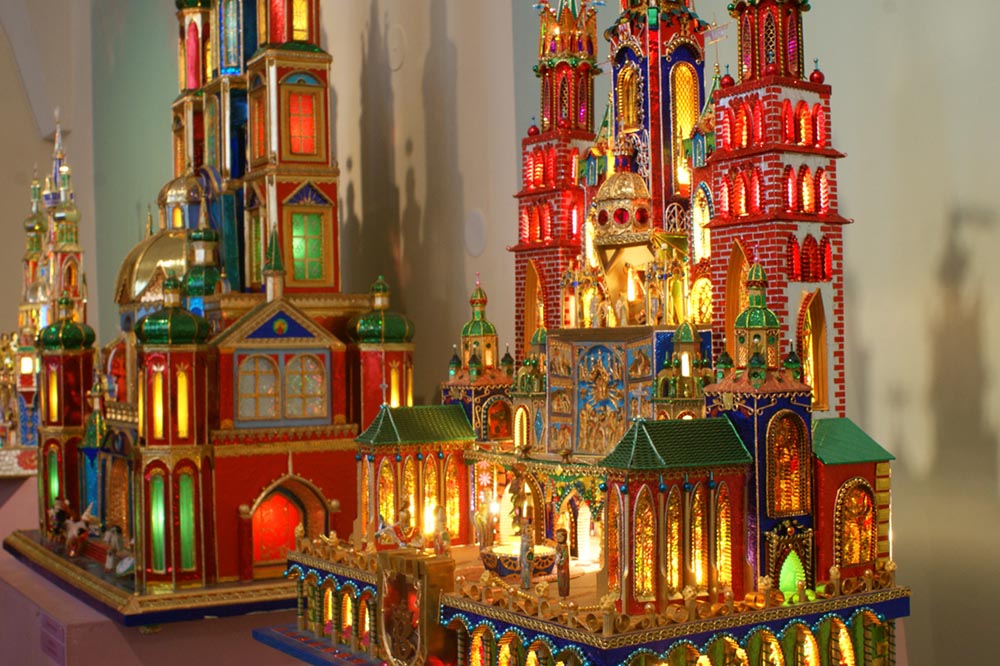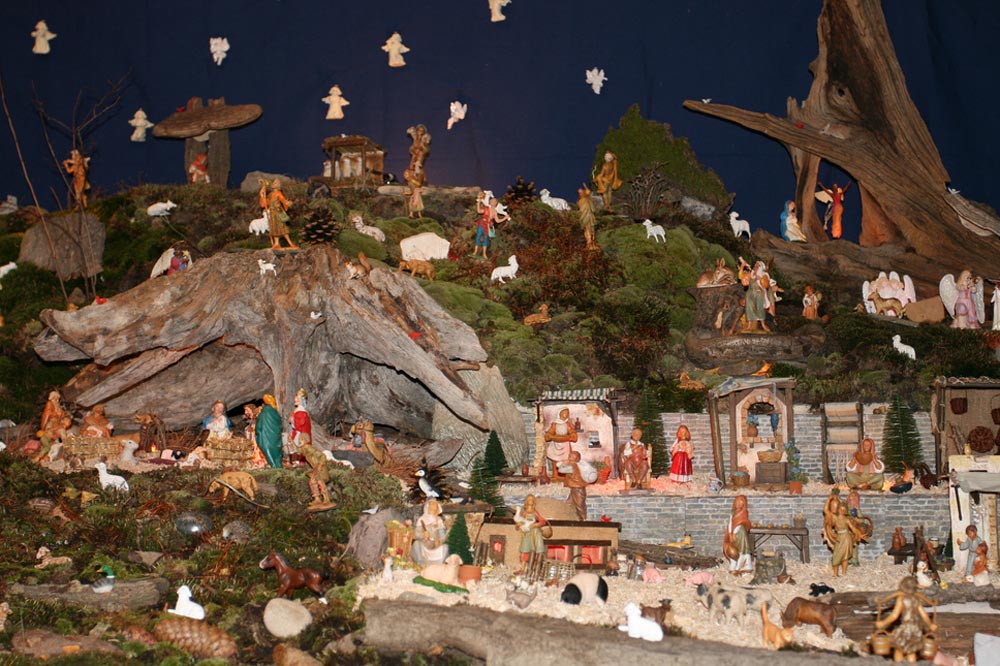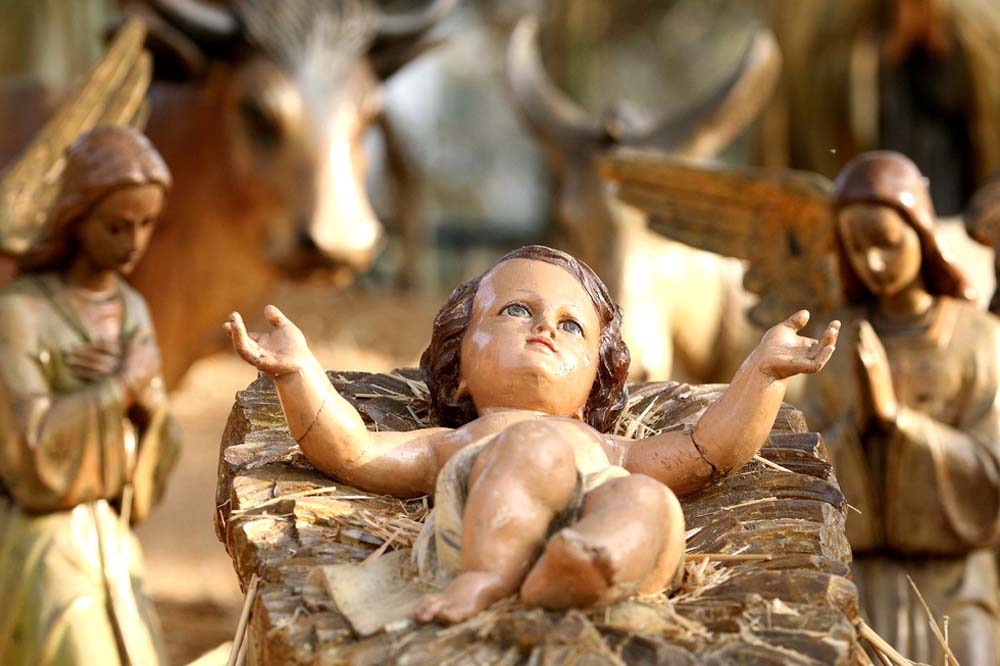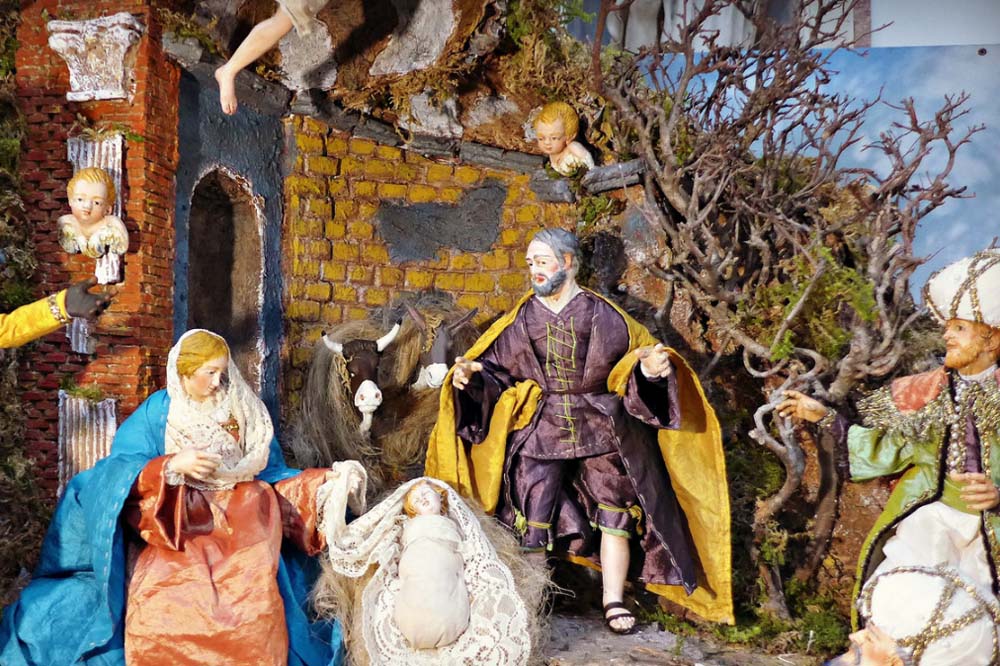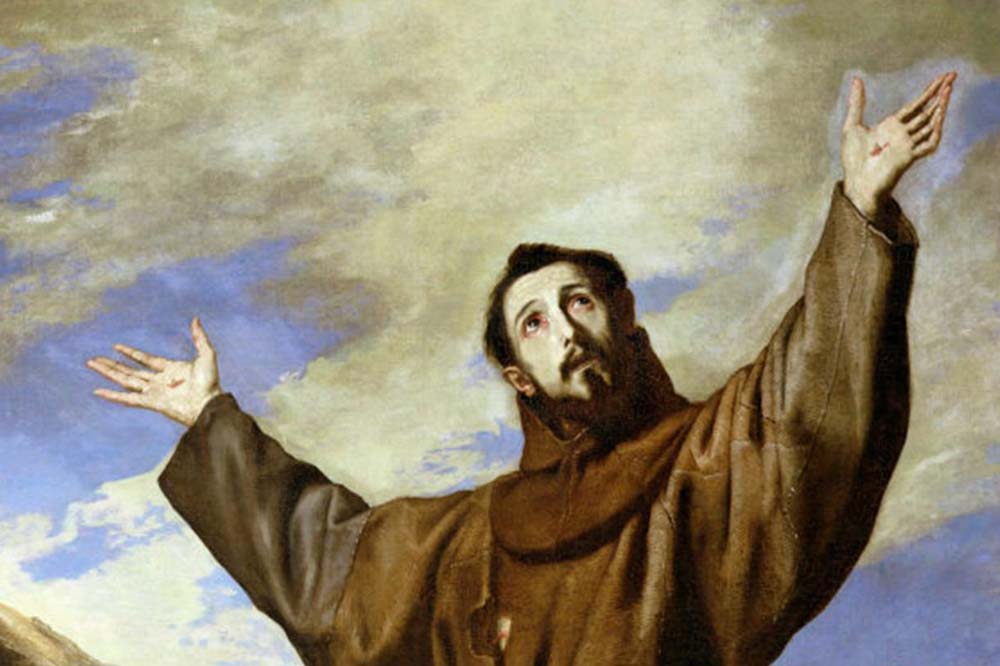The nativity scenes we know and recognize today have their roots in centuries of European traditions dating back to the 12th century. These early nativity scenes were usually made of terra cotta and were displayed year round in churches in the 1300s. Historians believe that around the year 1289, artist Arnolfo di Cambio carved one
More-
Creche Traditions in Europe: A History
-
How Nativity Scene Traditions Developed in America
American crèche traditions started in the 18th century with a small group of Protestant immigrants who brought their Christmas customs to their new homeland in the New World. The United Brethren from Herrnhut, commonly called the Moravians, was founded in Bohemia during the 15th century (in what is now the Czech Republic). On Christmas Eve
More -
Traditions for Placing Jesus and the Magi in Nativities
One of the most meaningful aspects of setting up a nativity scene inside or outside your home is the opportunity it offers for establishing traditions. Depending on where they grew up and how they were raised, many families have specific customs concerning the setup and the placement of their crèche. Some of these traditions surround
More -
What are Presepios? (And What Are Politicians Doing in the Manger?)
Every year on December 8 – a day known as the Feast of the Immaculate Conception – many Italian families take pride in displaying a presepio, or nativity scene, in their homes. In addition to the Holy Family, shepherds and animals, Italian presepios include townspeople and elaborate details such as lighting and even running water.
More -
Saint Francis and the Origin of the Creche
If a nativity scene is an important part of your family’s Christmas, you already are familiar with this lovely and meaningful way to honor the birth of Christ. You may not know, however, that Saint Francis of Assisi is credited with popularizing the crèche back in the 13th century. St. Francis of Assisi (c 1182-1226)
More
